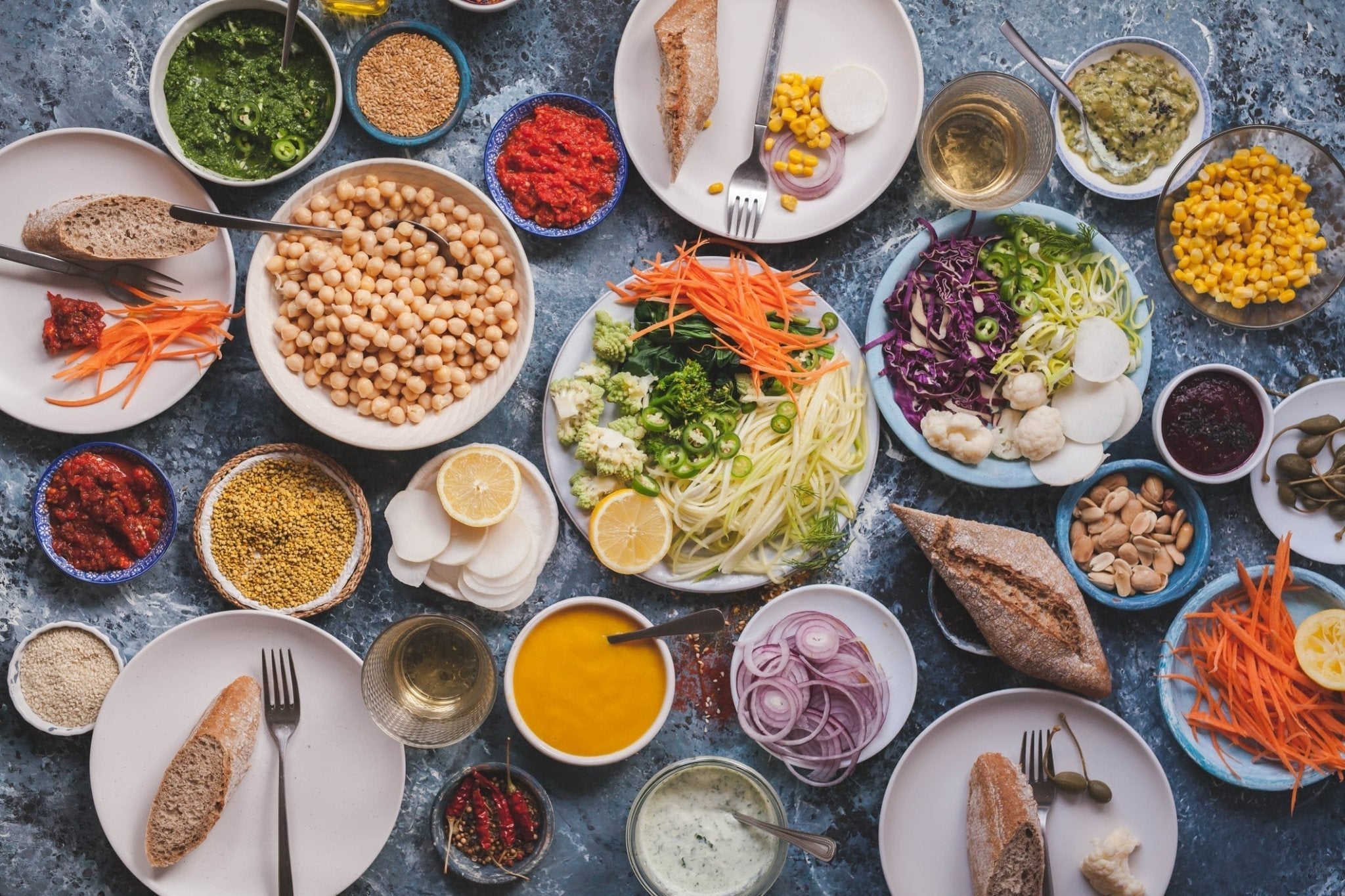
5 Ways to Prioritize a Healthy Organic Diet
ALWAYS LEAVE THE EARTH BETTER THAN YOU FOUND IT®
As the new year approaches, one of your resolutions may be to make healthier food choices. It may seem overwhelming at first, but it doesn’t have to be. We have put together some helpful ways to incorporate organic products into your healthy diet. It's not only thinking about it, but this includes planning and understanding food labels.
First let’s define what eating organic is. According to the U.S. Department of Agriculture the term “Organic” is food that is free from processed and synthetic fertilizers, pesticides, and weedicides in both produce, grains, and animal products including:
- Whole grains (brown rice, millet, oatmeal, etc.)
- High-quality proteins (grass-fed beef, organic chicken, etc.)
- Plant-based proteins (beans, nuts, seeds, etc.)
- Fruits and Vegetables; and
- Healthy fats (avocados, coconut oil, etc.)
Organic foods are healthier than conventional foods. Learn more in our article, “Why Is Organic Food Healthier”?
5 ways you can prioritize a healthy organic diet
- Plan your meals
- Understand the nutrition labels
- Focus on organic produce, grains, dairy, and protein
- Eat at home
- Commit to an eating schedule
Plan your Meals

When planning to adopt an organic diet, it helps to plan your meals in advance. Whether you use an online tracker, a spreadsheet, or a list, keeping track of your meals is vital when it comes to eating healthy and organically.
Begin by drafting potential meals for the week. Find healthy recipe inspiration here. Once you’ve solidified your meal plan, list the recipes and ingredients for each one. You can list them by category, for example vegetables, fruits, protein, oils etc. Whether you plan to make golden turmeric overnight oats for breakfast or fresh vegetables, quinoa and tofu for dinner, planning your meals will help you stay organized. An added bonus is that planning a shopping list often helps with staying within your grocery budget as well.
Pick a day that works for you to go grocery shopping and prepare your meals. It may seem like a lot of work upfront, but you'll see how smoothly your week goes and can ensure your diet is filled with organic foods that you need to stay healthy.
Understand the Nutrition Labels
Understanding nutrition labels is good practice when you’re making healthier choices. You don’t have to be an expert at reading labels, however, having a basic understanding of what you are putting in your body will be a helpful part of your journey.
Here is a tip, instead of selecting generic versions of foods, look for foods with labels that read “Organic” or “USDA Certified ''. Generally, it will be labeled on the front of the packaging, in letters or in large print. You should be able to find the organic call out on both the front panel, as well as on the information panel of the product. For example, Nature’s Path Organic Heritage Flakes Cereal uses organic callouts in a number of ways. Explore our product page to get familiar with where they may be found.
For additional helpful information on organic labeling in the U.S., visit USDA. GOV- Organic Products. However, don’t stress too much about the percentages, being mindful of what the claims mean is a great start. Keep in mind, anything that has an organic label is better than the conventional processed foods.
Focus on Organic Produce, Grains, Dairy, and Protein
Keeping a healthy organic diet is all about focusing on the food itself. Eating a wide variety of vegetables, fruits, grains, protein, and dairy products is important. It can help you meet your daily nutritional requirements while also providing you with the essential vitamins, minerals, and fiber your body needs.
Fruits and vegetables are important because they are high in fiber, vitamins, and minerals and low in fat. In addition, it's also an important source of antioxidants that help your body fight off free radicals. Keep in mind that some fruits and vegetables contain high levels of pesticides so either buy organic or grow your own produce if you can.
Whole Grains are rich in fiber and other nutrients that are often removed during processing. Whole grains also contain antioxidant compounds called phytochemicals which help lower your risk for chronic diseases like cancer and heart disease. To learn more about these compounds, read this article by Zhang YJ et al. (2015). The easiest way to make sure you're eating whole grains is to look for products labeled ”100% whole grain.
Protein and dairy products are also essential for your body. However, there is a greater nutritional benefit when it's organic because it contains omega-3 fatty acids and more antioxidants, and no hormones or pesticides.
Eat at Home

Home cooking is a great way to prioritize a healthy organic diet because you know exactly what products and ingredients go into your body. Although going out to a restaurant is convenient, you cannot be certain what ingredients are in their foods; some restaurant foods can be highly processed and unhealthy.
Instead, purchase good quality organic products from your local grocery store and prepare a meal for yourself and your family. This way you will save money and your body will feel better.
If you are in a rush in the morning make a quick yogurt parfait with Hemp Hearts granola or a tasty gluten-free cereal with a splash of your favorite organic nut milk.
Commit to an Eating Schedule
Committing to an eating schedule everyday can help you feel more in control of your eating habits. When you decide to eat at certain times, you create a routine that will help you stay on track with consuming more healthy organic foods. The time you eat does not matter. Most people have their lunch, midday or around 12 p.m. and avoid eating 2-3 hours before bedtime.
According to a few studies published on ScienceDaily.com, eating irregularly puts you at risk for high blood pressure, type 2 diabetes, and obesity. As you prepare your meals, make a mental note of when you plan to eat breakfast, lunch, and dinner. The best part, if you make food you’re excited to eat, you’ll find yourself looking forward to each meal and sticking to the best times to enjoy them.
Planning and learning to take control of your health is the key to maintaining a healthy organic diet. Remember that it's not about being perfect but being aware and purposeful. That is what will help you succeed in your health journey.
Find organic products you look forward to enjoying and remember that small changes can make a big impact. Nature’s Path products are “Always Organic”. They taste delicious and can help in your healthy eating journey. Explore our organic products here. We also offer other organic options that are vegan and gluten-free.
